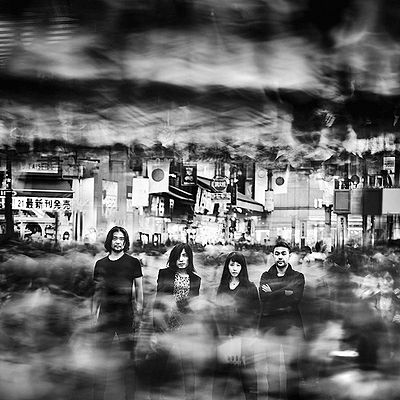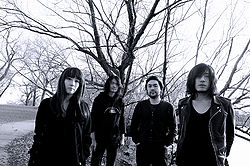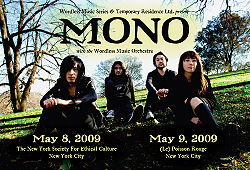Main Page: Difference between revisions
(Added Main Index & Featured Artists Headings) |
mNo edit summary |
||
| Line 3: | Line 3: | ||
{| width="100%" cellspacing="3" | {| width="100%" cellspacing="3" | ||
|- width="100%" valign="top" | |- width="100%" valign="top" | ||
| | |{{MainPageIndex}} | ||
{{MainPageIndex}} | |||
|- width="100%" valign="top" | |- width="100%" valign="top" | ||
| | |{{FeaturedArtists}} | ||
{{FeaturedArtists}} | |||
__NOTOC____NOEDITSECTION__ | __NOTOC____NOEDITSECTION__ | ||
Revision as of 23:12, 19 March 2009
|
Introduction
Welcome to the Jpop Stop! Wiki! Despite the name, the main objective of Jpop Stop! is to spread knowledge of Asian music and video. This wiki is open so that any registered member can edit or add to it. We actively encourage this. This is intended as a community project and is therefore yours to refer to and yours to create. For those unaware, part of the idea of this wiki is to restore Wiki.thePPN's numerous articles in a usable format and build upon it. As thePPN has not returned for over a year, this wiki has been fully endorsed by Womby (the original owner of thePPN) as its successor. This may cause some debate, but keep in mind that this site exists simply to create a comprehensive Asian wiki focusing on all aspects of the culture, including music, video, and even anime to some degree. |
|
Featured Article
|
|
Where to Start?
You can browse the content of the Wiki by using the categories to the right. The search box above allows you to quickly locate artists, song titles, television shows and more. If you want to see the latest edits and additions, visit the Recent Changes page. Interested in what is happening in the world of Asian culture? We are working to add a news section to the site. Stay tuned! Browse the dictionary for a list of common words and terms used throughout the Wiki. |
|
How You Can Help
This is an open Wiki that anyone can edit. Accurate and helpful information is always welcome so feel free to add to or correct anything you see. Changes are monitored by other users and all edits can be reversed with a couple clicks. Useless pages are flagged for deletion. IP addresses are also logged with all edits. Anyone who spams or abuses the system will be banned. Registration is currently required to contribute. |
|
Quick Links
|
|
Important Editing Notes
Regular Wikipedia entries do not contain links to song and album titles, but as this is a music and media focused site please mark all songs, singles, albums, genres, soundtrack appearances, and so forth as links. If a band (such as D'espairs Ray and Dué le quartz) has an alternate spelling, please make a redirect page for the alternate one. How to use redirects can be found here. If you're new to Wiki coding, don't let that stop you from contributing. Others will help clean up, format and "Wikify" your contributions until you get the hang of the standards and practices used here. More editing notes and tutorial links can be found on the Help page. Some stylistic guidelines can also be found on the Style Guide. |
|
Asian Language Fonts
This Wiki uses Kanji on many pages. If you see a bunch of question marks in the articles, you do not have these fonts installed and are not getting the full experience of this site. The good news is that most common operating systems have many languages and fonts built in, and it's just a matter of enabling them somewhere in the "Language" section of the system control panel. Check the Help section for step-by-step system specific instructions. |
|
Copyright Infringements
When composing or editing articles, especially with things like biographies, please do not simply copy and paste from other web sites without their permission. Because anyone can edit this Wiki, instances of unauthorized content use from other sites can happen. If you're a webmaster and feel your content has been used here without permission, use the {{Infringement}} template tag to add an infringement notice to the article in question then add a new section to the Jpop Stop!:Infringement Notice page describing the grievance. The category Category:Copyright Infringement has been created to ease tracking for these matters. |
| |||||||||||||||||||||||||||||||||
|
|||||||||||||||||||||||||||||||||








